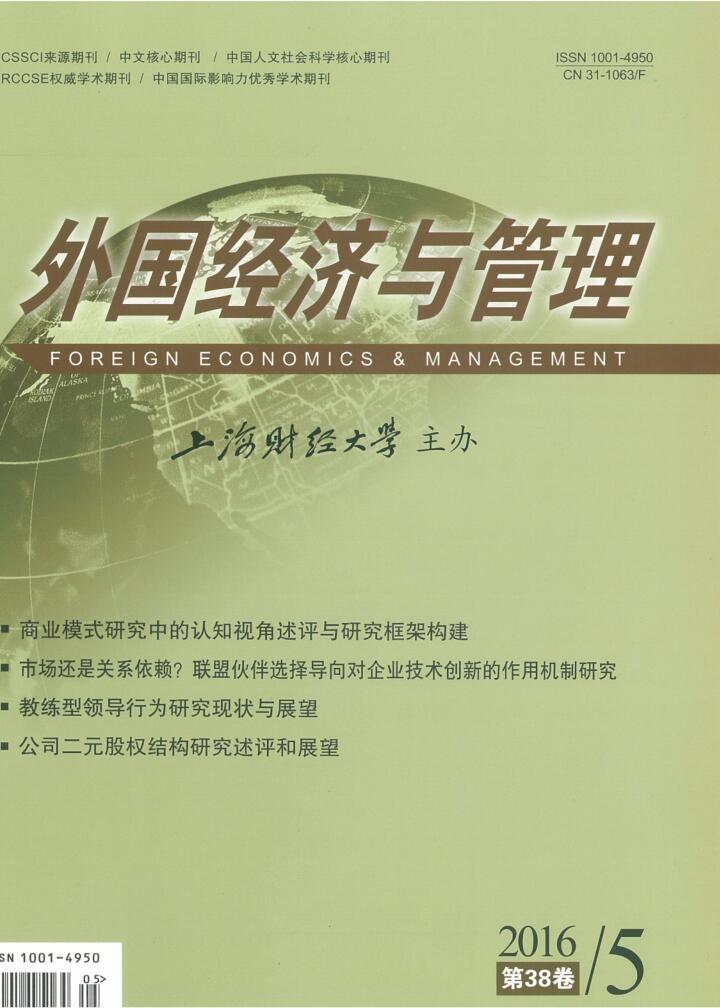随着以信息和互联网为代表的知识经济的发展,越来越多的企业运用二元股权结构赋予创始股东控制公司董事会、进而控制公司重大经营与财务决策的权利,以激励企业家创业和创新。本文首先分析了公司选用二元股权结构的动因,包括保护企业家和创始股东控制权、防止恶意收购、防止职业经理人的利益侵害和行业需要等。其次,从企业家才能、法治传统和成本与收益权衡等角度分析了二元股权结构中所有权与控制权安排的机理。再次,综述了公司选择二元股权结构的经济后果,包括对股价、回报率和财务业绩的影响,对盈余质量和信息披露质量的影响,相关研究结论是混合的。本文认为,需要加强对二元股权结构的经济学理论基础、适用条件、经济后果和投资者保护机制等问题的研究。
公司二元股权结构研究述评和展望
摘要
参考文献
1 Ang J S,Megginson W L. Restricted voting shares,ownership structure,and the market value of dual-class firms[J]. Journal of Financial Research,1989,12(4):301-318.
2 Bacon C J,Cornett M M,Davidson Ⅲ W N. The board of directors and dual-class recapitalizations[J]. Financial Management,1997,26(3):5-22.
3 Bayley K D. Rule 19c-4:The death knell for dual-class capitalizations[J]. The Journal of Corporation Law,1989,15(1):1-25.
4 Boehmer E,Sanger G C,Varshney S B. Managerial bonding and stock liquidity:An analysis of dual-class firms[J]. Journal of Economics and Finance,2004,28(1):117-131.
5 Chemmanur T J,Jiao Y W. Dual class IPOs:A theoretical analysis[J]. Journal of Banking & Finance,2012,36(1):305-319.
6 Easterbrook F H,Fischel D R. The economic structure of corporate law[M]. Cambridge:Harvard University Press,1991.
7 Gompers P A,Ishii J,Metrick A. Extreme governance:An analysis of dual-class firms in the United States[J]. The Review of Financial Studies,2010,23(3):1051-1088.
8 Holmen M,Nivorozhkin E. The impact of family ownership and dual class shares on takeover risk[J]. Applied Financial Economics,2007,17(10):785-804.
9 Hong H A. Does mandatory adoption of international financial reporting standards decrease the voting premium for dual-class shares?[J]. The Accounting Review,2013,88(4):1289-1325.
10 Hossain A T. Dual v. single class firms:An acquisition perspective[J]. Journal of Accounting and Finance,2014,14(3):9-20.
11 Jensen M R H,Marshall B B,Jahera J S Jr. Retaining majority ownership and control after the IPO[J]. The Journal of Corporate Accounting & Finance,2014,25(2):57-65.
12 Masulis R W,Wang C,Xie F. Agency problems at dual-class companies[J]. Journal of Finance,2009,64(4):1697-1727.
13 Maury B,Pajuste A. Private benefits of control and dual-class share unifications[J]. Managerial and Decision Economics,2011,32(8):355-369.
14 McGuire S T,Wang D C,Wilson R J. Dual class ownership and tax avoidance[J]. The Accounting Review,2014,89(4):1487-1516.
15 Muravyev A. Dual class stock in Russia:Explaining a pricing anomaly[J]. Emerging Markets Finance and Trade,2009,45(2):21-43.
16 Neumann R. Price differentials between dual-class stocks:Voting premium or liquidity discount?[J]. European Financial Management,2003,9(3):315-332.
17 Nguyen V T,Xu L. The impact of dual class structure on earnings management activities[J]. Journal of Business Finance & Accounting,2010,37(3-4):456-485.
18 Niu F. Dual-class equity structure,nonaudit fees and the information content of earnings[J]. Corporate Governance,2008,16(2):90-100.
19 Partch M M. The creation of a class of limited voting common stock and shareholder wealth[J]. Journal of Financial Economics,1987,18(2):313-339.
20 Smart S B,Zutter C J. Dual class IPOs ARE underpriced less severely[J].The Financial Review,2008,43(1):85-106.
21 Smith B F,Amoako-Adu B. Relative prices of dual class shares[J]. The Journal of Financial and Quantitative Analysis,1995,30(2):223-239.
22 Swisher J. Dual-class companies:Do inferior-voting shares make inferior investments?[J]. American Journal of Business,2006,21(1):41-48.
23 Zhang Y. Dual-class stocks and the benefits of control[J]. Applied Economics Letters,2007,14(4):293-297.
引用本文
陆宇建. 公司二元股权结构研究述评和展望[J]. 外国经济与管理, 2016, 38(5): 86–98.
导出参考文献,格式为:
上一篇:感官营销研究综述与展望
下一篇:跨国公司海外子公司治理研究新进展





 7611
7611  8211
8211

